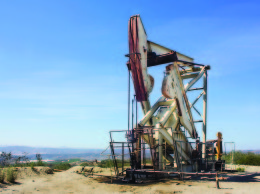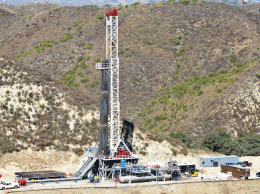
Lisa Spiwak
At close to $33 per barrel, crude oil has dropped more than 60 percent since June 2014 — which is great for our economy because it significantly reduces the average price of gas and heating oil.
Regular gasoline now averages $2 per gallon nationally. This translates to cheaper costs to transport goods and run your household. It means that many Americans, who have not seen a recent wage increase, will actually have more money in their pockets to boost their budgets. This should in turn act as a stimulus to the economy. One would assume that those extra dollars in our pockets each week mean that we are going to splurge a little by eating more meals out and perhaps stop off at the mall for a little retail therapy after work.
In fact, things should be hopping. But they aren’t. Why are Americans holding back? According to analysis of data collected by the Commerce Department, Americans are hesitant to spend their gasoline windfall on nonessentials. Instead, they are using their extra dollars to pay down their existing credit card debt. Why is this?
Well, as welcome as the extra cash in our pockets is, the downside to this drop in the price of crude oil is that it is a sign of weakness in the economy overall. The price decline in oil is in part due to lower demand and in part due to increased production. The lower demand for crude oil is a result of slow growth in Europe, China and other developing countries.
Also, vehicles are becoming more energy efficient, so the demand for fuel is less.
The question must then be asked, if there is a decline in the need for crude oil, why in the world is there an increase in the production of crude oil? This is a very interesting question.
The cartel that controls the world’s oil is the Organization of Petroleum Exporting Countries. It is Saudi Arabia that has been the spigot that sets the daily production limits for OPEC’s participants and Saudi Arabia provides roughly 30 percent of OPEC’s supply. Since Saudi Arabia is essentially sitting in the driver’s seat, why aren’t they putting on the brakes?
It is a strategic move on their part not to slow down production of crude oil. Saudi Arabia is the only one in the oil game that can fiscally sustain at these low prices and they are hoping to squeeze out their competition in the process.
Saudi Arabia and Kuwait can pump a barrel of oil for less than $10 on average. Iraq produces oil for $10.70 per barrel. However, other players such as the United States, Russia, Brazil, Venezuela and Iran have a much higher cost to produce crude oil and cannot sustain production at the current oil prices. Their economies are getting pummeled. Many are falling into deep recession.
Saudi Arabia has not been happy that the United States has entered the oil game and they want us out. They know that keeping the price of oil this low will eventually drive the United States out of the market.
In the U.S., the states that are dependent on oil production such as Alaska, North Dakota, Texas, Oklahoma and Louisiana are facing serious economic challenges.
Chevron, Royal Dutch Shell and BP have all announced cuts to their payroll to save cash. An estimated 250,000 oil workers have lost their jobs and approximately two-thirds of the U.S. oil producers have cut their investments in exploration and production way down. New oil projects are being shelved, which is exactly what Saudi Arabia had hoped would happen. Many oil companies have slashed their dividends and about 40 companies in North America have gone bankrupt.
So, while the lower gas prices are definitely putting a few extra dollars in our pockets, the overall global economic outlook is still uncertain and people are reticent to spend unnecessarily. Between terrorism, a plunging stock market, political uncertainty and a shrinking job market, no one is parting with a dollar unless they have to.
• Lisa Spiwak is a partner with Spiwak & Iezza in Thousand Oaks. Contact her at LSpiwak@SpiwakandIezza.com.






 Print
Print Email
Email

















